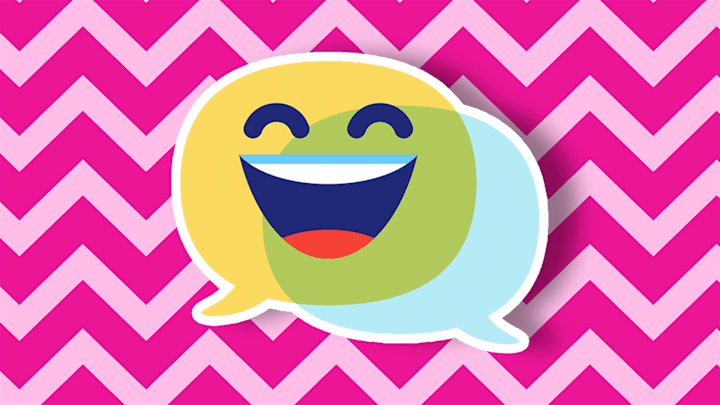The English language has many colorful ways to convey laughter in writing, from the straightforward haha to the Gen Z favorite ijbol (“I just burst out laughing”). Even if you speak fluent English, it can be hard to keep up with how some of these terms evolve over time. Take lol, which is now more often used as a discourse marker or a reflection of understated amusement than a sign that someone literally laughed out loud.
Unsurprisingly, other languages have just as much nuance in their typographical laughter—and you can explore a bunch of it for yourself in this breakdown from Rest of World. It features written renderings of laughter in 46 different languages, starting with English’s tried-and-true hahahahahaha.
Certain expressions have pretty straightforward English counterparts. Maybe you already know that hahaha is typically written as jajaja in Spanish. It’s חחח in Hebrew, 哈哈哈 in Mandarin, and ہا ہا ہا in Urdu. And Irish speakers have their own version of lmao (“laughing my a** off”): abmtag, short for ag briseadh mo thóin ag gáire.
As it turns out, figuratively laughing yourself to death is a pretty popular sentiment across cultures. In English, you might type dying laughing, I’m dead, or even just dead. (And avid emoji users might opt for the skull or the coffin, instead.) In Jamaican Creole, you’d type dwl, short for “dead wid laugh.” And in French, the proper initialism is mdr, short for mort de rire (meaning “dead from laughter”).
A thread of k’s is another common way to write out your laughter in a number of languages, from Brazilian Portuguese to Zulu to Korean (where the symbol for the “k” sound is ㅋ).
Find out what else made the list—and see the image “making” all these hypothetical texters laugh so hard in the first place—via Rest of World.
